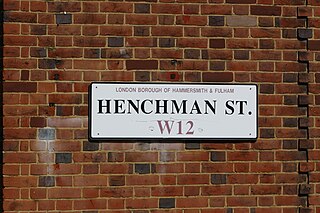
Founders Don’t Need a Strategist as the First PM
by Matt ReiderI recently spoke with the CEO of a small, scrappy, and profitable startup. Let’s call him Mike. His company pulls in a few million dollars a year with a lean team. They’ve made it past the survival stage, but now they’re grappling with the next big question: how to grow.
Mike’s team is stuck on a familiar startup dilemma: which user to prioritize. Mike wants to focus on buyers, adding features like loyalty programs, promotions, and customer acquisition tools. His team, on the other hand, is more focused on the practitioners. Helping them means pushing to reduce pain points, automate workflows, and fix bugs. Classic short-term vs. long-term thinking, but also a split in who the team believes matters most.
Startups rarely have the resources to chase both paths at once. My sense, though I can’t say for sure, is that Mike already had a preference but hesitated to articulate it. When he asked me whether a product management course, or a PM hire, might help his team with prioritization, I wasn’t sure if he was looking for clarity or just hoping for validation.
Vision vs. Execution
This isn’t unique. It’s common for founders and teams to have trouble agreeing on what’s important. Early on, founders are de facto product managers. But as their responsibilities grow, they spend less time in the trenches and are taken by surprise when their team is working on things they never agreed to.
This is definitely the case for Mike. He now spends most of his time pitching to buyers and closing deals, while his team is often back at the office fighting fires. It’s no wonder their priorities diverge. Mike can’t, or shouldn’t, micromanage every decision, but the company was headed somewhere, and now it’s stalled a bit, and is headed somewhere else.
Reflecting on My Own Experience
This reminds me of my time as a PM at the Y-Combinator startup, Checkr, where I was the second PM, working under a talented but relatively inexperienced PM director. One of our biggest jobs was translating the founder’s vision into an actionable roadmap. Sure. we had our own thoughts and ideas, and eventually we’d influence things directly, but at the beginning our jobs were more about sailing towards the founder’s compass point without challenging much of anything.
This phase was not about big-picture strategy. It was simple alignment. Our jobs weren’t about what to build; we were there to keep the team connected to the bigger picture, especially when the work felt reactive or tedious.
What Mike Needs in a First PM
When Mike and I talked a few weeks later, he said he was thinking about hiring a product manager instead of enrolling his team in a strategy course. Probably the right move. But it got me thinking about what kind of PM a company like Mike’s actually needs.
Broadly speaking, PMs fall into two camps: execution-focused and strategy-focused.
Execution PMs are great at taking high-level priorities and turning them into actionable plans. The risk is that they can sometimes feel like glorified project managers, moving tickets in Jira without influencing the product’s direction.
Strategy PMs focus on the big picture: market trends, customer needs, and long-term vision. They’re essential for growth but less useful when a team is struggling with day-to-day decisions.
For a company at Mike’s stage, the immediate need is for an execution-focused PM. Someone to bridge the gap between Mike’s vision and the team’s daily work. Influencing the strategy matters eventually, but right now, the team needs help remembering the right trade-off decisions, and nothing more.
The image of the street sign is licensed under the Creative Commons Attribution-Share Alike 2.0 Generic license.
Original photo by Loz Flowers. Source: Flickr.